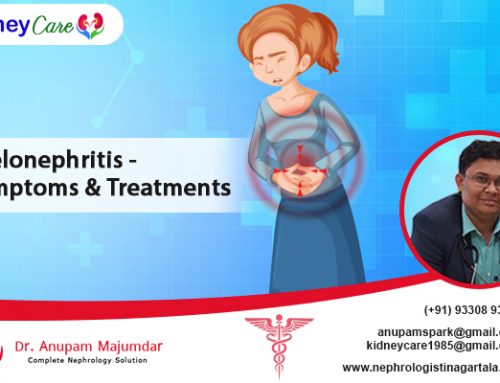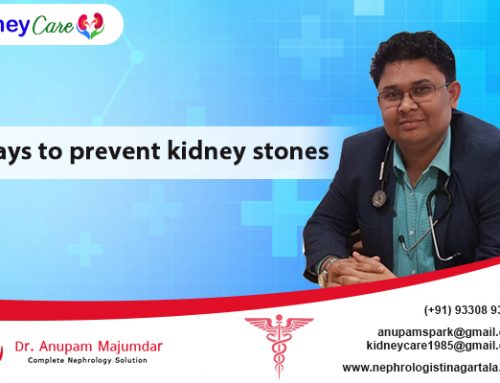Each kidney is situated on either side of your spine, just below the ribcage. Kidneys aid in the removal of toxins and excess fluids from the body, allowing the rest of the body to function normally. UTIs, kidney infections, and kidney stones are all common causes of kidney pain. Since your kidneys rest against your back muscles, it can be difficult to tell the difference between back pain and kidney pain. According to Anupam Majumdar, considered to be the best nephrologist in Agartala, there are some discernible signs and symptoms that will help you differentiate between the two.
How to Tell if Your Pain Is From Your Back or Your Kidneys
Location
Back pain can take place anywhere in the back, from the top of the spine near the base of the neck to the bottom of the spine near the tailbone. Damage to the nerves, muscles, discs, or any of the vertebrae in the spine may all be causes of back pain. Kidney pain is a more complex form of back pain than general back pain.
Kidney pain is most often felt in the area where the kidneys are located at the base of the rib cage on either side of the spine. Pain can be felt on one or both sides of the spine, depending on the cause. Kidney pain can spread to other parts of the body, including the side, abdomen, groin, and thigh.
Time
Another way to differentiate back pain from kidney pain is to look at the timeline. Back pain can come and go, and some motions, such as leaning over or sitting up, can aggravate it. On the other hand, pain associated with the kidneys is normally dull and stable, and does not alter with movement, says the kidney specialist in Agartala. Kidney pain does not usually go away on its own, unless it is caused by kidney stones.
Pain Type
The type of pain varies depending on the source of back pain, from incremental pain that stays localised in the region of inflammation, as with muscle or ligament strain, to numbness and tingling, as with sciatic pain. The nephrologist in Agartala explains that pain associated with kidney infections is usually characterised as a dull, constant soreness or achiness.
Additional Symptoms
Aside from the discomfort, back pain is usually accompanied by no other symptoms. Other signs such as nausea, fever, vomiting, and urinating or bowel disturbances are much more likely to accompany kidney pain.
If you only have back pain and no other symptoms, the condition is most likely linked to the spine or back muscles; however, if you have any other symptoms along with your back pain, consult your kidney specialist doctor in Agartala to ensure it isn’t a more severe kidney problem.







Leave A Comment